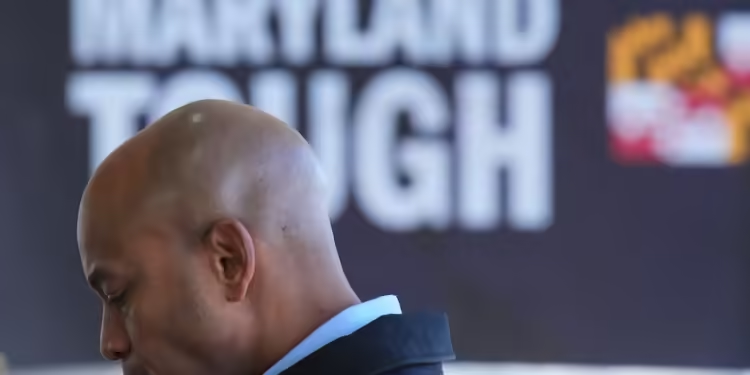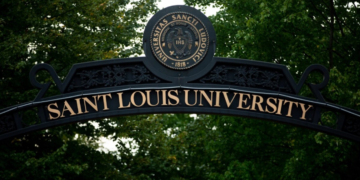May 16, 2025 Story by: Publisher
This article has been updated to include a quote from Governor Wes Moore and the Legislative Black Caucus.
In a move that underscored his preference for action over study, Maryland Gov. Wes Moore vetoed legislation to form a reparations commission, arguing that the state already possesses ample research on slavery’s legacy and must instead focus on immediate policies to close racial wealth and opportunity gaps.
Maryland Gov. Wes Moore vetoed a bill to create a commission to study reparations for slavery, arguing that further study would delay “the work itself” of addressing racial inequities through concrete policies. Moore—currently the only Black governor in the nation—pointed to prior state studies and ongoing programs as sufficient groundwork, and emphasized immediate action on homeownership, education, and economic opportunity. Supporters—including the Legislative Black Caucus—expressed deep disappointment and are weighing a potential veto override in the legislature’s next session.
“But in light of the many important studies that have taken place on this issue over nearly three decades, now is the time to focus on the work itself: Narrowing the racial wealth gap, expanding homeownership, uplifting entrepreneurs of color, and closing the foundational disparities that lead to inequality — from food insecurity to education,” Moore wrote.
Background on the Reparations Study Bill
The bill was introduced in this year’s legislative session as a top priority of the Legislative Black Caucus, which, with 66 members, is the largest Black caucus in the nation’s state legislatures.
Maryland’s Senate Bill 587 would have established a bipartisan commission to examine the legacy of slavery in the state and recommend appropriate forms of reparations, ranging from financial compensation to educational scholarships. The legislation passed both chambers with veto‑proof majorities, marking it a top priority for the Legislative Black Caucus, the largest Black legislative caucus in the country. Previous state bodies—such as the Maryland Lynching Truth and Reconciliation Commission—have already produced extensive reports on racial violence and structural discrimination.
The measure passed with strong support in the General Assembly, which is controlled by Democrats. The House voted 101-36 for the bill, and the Senate approved it 32-13. Both chambers approved the measure with margins large enough to override a veto, if all members who voted for the bill decided to vote to override the governor’s veto.
The legislature ended its regular 90-day session last month, and it would not take up veto overrides until lawmakers gather again, whether next year’s regularly scheduled 90-day session in January, or a special session this year, if one were to be called.
Governor’s Rationale for the Veto
In his veto letter, Moore wrote that while he respected the legislature’s efforts, “now is not the time for another study; now is the time for continued action that delivers results for the people we serve”. He argued Maryland already has “an abundance of research” on slavery’s legacy, and has been building “a culture of repair” through policies aimed at narrowing the racial wealth gap and expanding Black homeownership and entrepreneurship. Moore included this measure among 23 bills he rejected this year, most of them “summer study” resolutions, underscoring his view that further commissions would stall progress.
Reaction from Supporters and Legal Advocates
State Sen. C. Anthony Muse, sponsor of the bill, lamented that Maryland’s first Black governor “missed an opportunity to lead on one of the most significant moral issues of our time”. Carl Snowden, convener of the Caucus of African‑American Leaders, said the veto “ignores the lived experiences of descendants of enslaved people who still feel the effects today”.
“At a time when the White House and Congress are actively targeting Black communities, dismantling diversity initiatives, and using harmful coded language, Governor Moore had a chance to show the country and the world that here in Maryland we boldly and courageously recognize our painful history and the urgent need to address it,” The Legislative Black Caucus said in a statement. “Instead, the State’s first Black governor chose to block this historic legislation that would have moved the state toward directly repairing the harm of enslavement. The bill, which passed by an overwhelming majority in the House and Senate, was crafted to bring together leaders, impacted residents and experts to study and make recommendations on reparations in Maryland. While unilateral executive actions and piecemeal legislation addressing disparities can contribute to progress, they cannot substitute meaningful, sustained, and comprehensive efforts commissioned in this bill to address reparations and repair. We are elected leaders in the state that enslaved renowned abolitionists Harriet Tubman and Frederick Douglass, and we convene in a State House that is less than a mile from the Annapolis City Dock — one of the nation’s earliest and most high-traffic ports of enslavement. We owe this bill to those who endured forced labor and all Black Marylanders impacted by enslavement, discrimination, and its long-term harm. As federal efforts to erase our history and attack the most vulnerable continue, Marylanders need decisive, courageous action at the state level.”
Last year, California lawmakers passed some of the nation’s most ambitious legislation aimed at atoning for a legacy of racist policies that drove racial disparities for Black people. None of the bills provided widespread direct payments to Black Americans. Instead, California lawmakers approved the return of land or compensation to families whose property was unjustly seized by the government, and issuing a formal apology.
New York City lawmakers approved legislation last year to study the city’s significant role in slavery and consider reparations to descendants of enslaved people.
In 2019, Evanston, Illinois, became the first U.S. city to enact a reparations plan for its Black residents. Two years later, the Chicago suburb adopted its first initiative: a housing program offering up to $25,000 to individuals to remedy the harm caused by decades of discriminatory housing practices.
What’s Next
A two‑thirds majority vote in both the Maryland House and Senate could override Moore’s veto; supporters are organizing for that effort in upcoming sessions. Meanwhile, Moore’s office says it will continue to channel resources into targeted programs addressing wealth disparities, education access, and food insecurity among Black Marylanders . As other states—such as California and New York—move forward with formal reparations initiatives, Maryland’s choice will be watched as a bellwether for how jurisdictions balance study versus action on the enduring legacies of slavery.
Source: AP News / WBFF / U.S. News / The Washington Post / Maryland Matters / ABC News

















